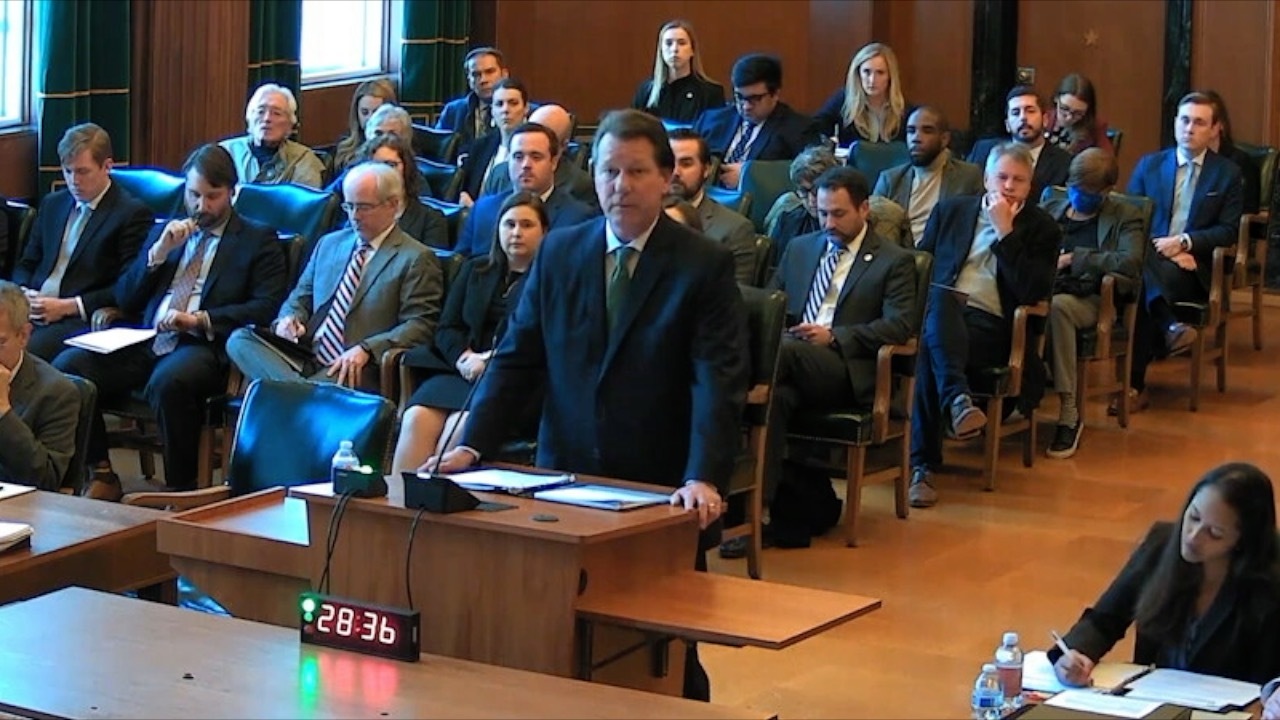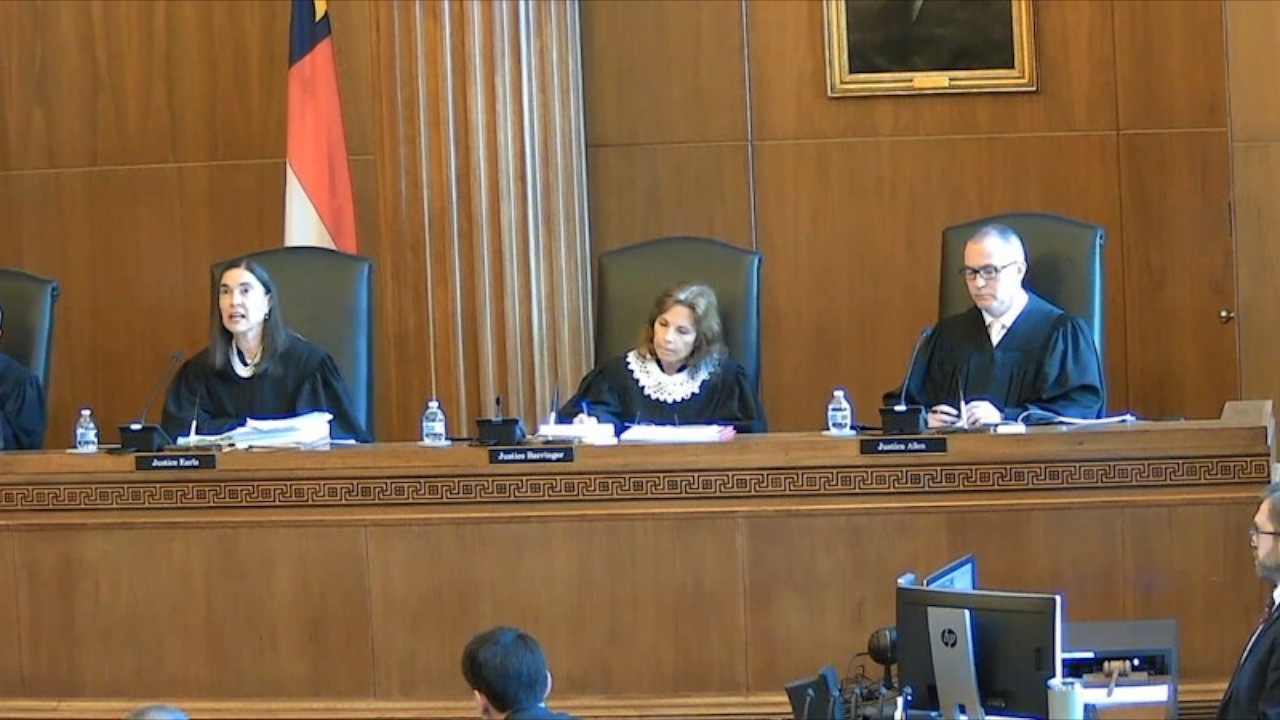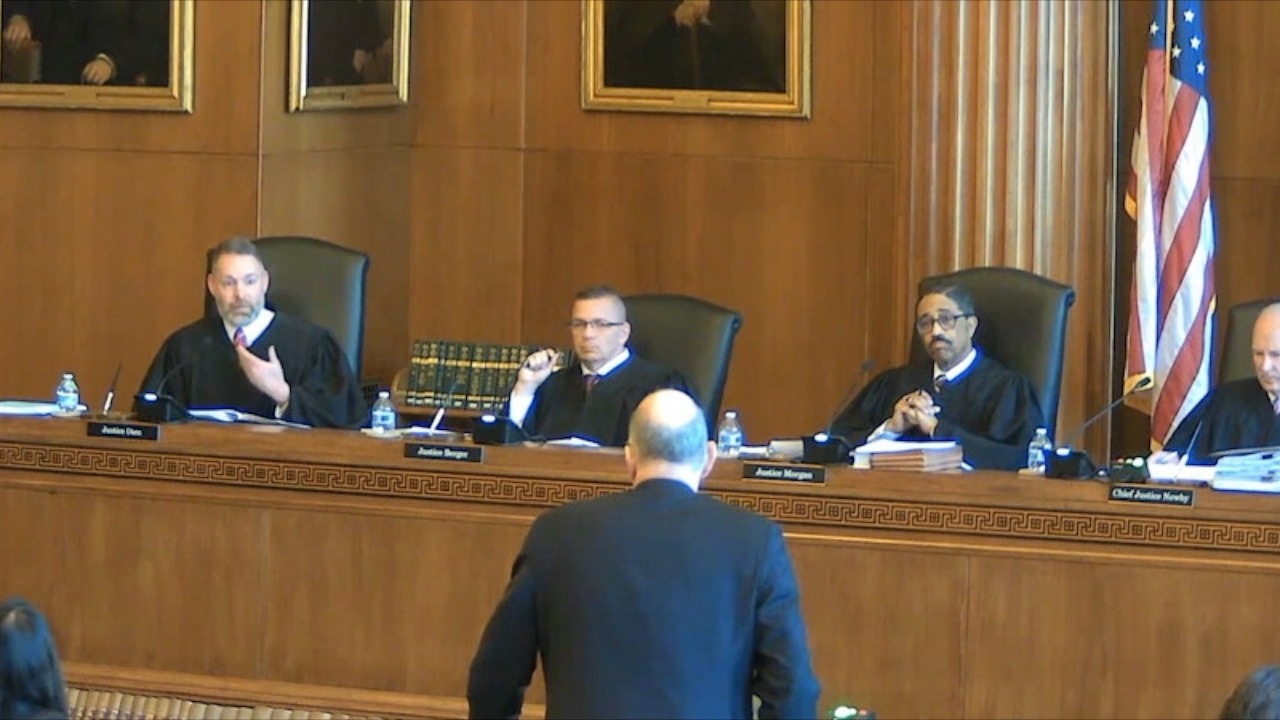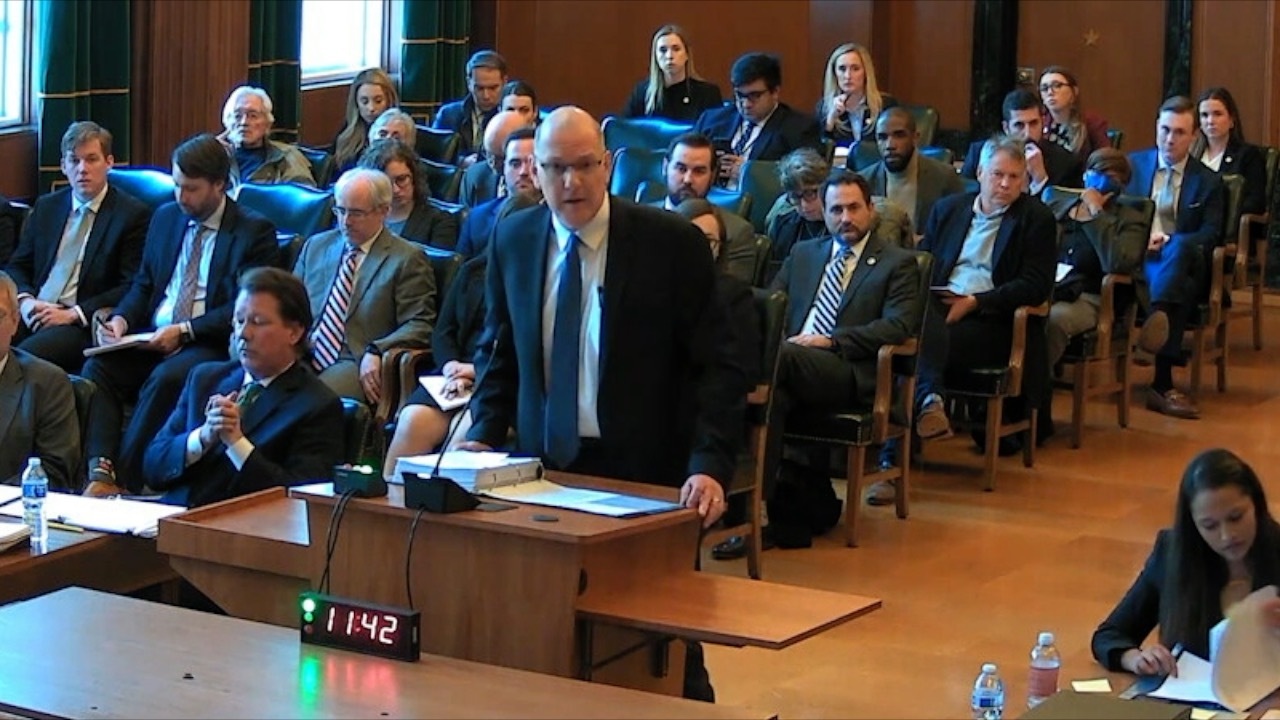- The N.C. Supreme Court heard fresh arguments in the Harper v. Hall redistricting case Tuesday. The court, with a new 5-2 Republican majority, could reverse a December decision from the old court's 4-3 Democratic majority.
- The debate included how many statewide election maps legislators will be able to redraw for the 2024 election cycle.
- One justice mentioned the possibility of sanctions for a plaintiff that suggested the request for Tuesday's rehearing was "frivolous."
The N.C. Supreme Court signaled Tuesday that it’s likely to make a significant change in a redistricting case that produced a party-line 4-3 ruling three months ago.
Republican legislative leaders have challenged that ruling. Their attorney, Phil Strach, criticized the court’s earlier decisions during a rare rehearing of the Harper v. Hall case.
“Legislature, you are Charlie Brown, and we, the court, are Lucy, … and we’re going to pull that football right out from under you because we didn’t really mean what we said when we thought there was a clear rule that you could follow,” Strach said. “Instead it’s now going to be a holistic rule based on a bunch of expert reports that we, the court, will decide what the map will look like ultimately based on a constellation … of standards that only we know.”

The challenged Dec. 16 ruling came from a court with a 4-3 Democratic majority. Justices issued their decision little more than one month after voters replaced two high-court Democrats with Republicans.
Now with a 5-2 Republican majority, the state Supreme Court agreed on Feb. 3 to hold the rehearing.
The old 4-3 Democratic-majority state Supreme Court produced two party-line rulings in the Harper case. Harper I, issued in February 2022, cited several provisions of the N.C. Constitution to invent a new ban on partisan gerrymandering. The ruling prompted state lawmakers to redraw maps for N.C. House, N.C. Senate, and congressional elections.
Harper II, issued in December, upheld a trial court’s decision to throw out lawmakers’ redrawn congressional election map. Trial judges ended up substituting a map developed by outside consultants known as “special masters.” The state Supreme Court’s Harper II ruling also threw out lawmakers’ redrawn state Senate map, which had survived the trial court’s review.
State legislative leaders believed the outgoing Supreme Court made constitutional errors.
“It created a partisan gerrymandering claim out of whole cloth, out of multiple vague state constitutional provisions that do not say anything about partisanship in redistricting,” Strach said.
Strach spent much of his portion of the argument answering questions from the court’s two Democratic justices, both of whom endorsed the disputed Harper I and Harper II rulings in 2022.

Justice Anita Earls pointed to a trial court’s findings that Republican election maps involved excessive partisan gerrymandering. “You’re asking us to say that, in spite of those facts, this North Carolina Constitution offers no protection to voters.”
“Are you saying because ‘fair’ does not appear in the constitution, that elections don’t have to be fair? That it’s alright for them to have predetermined outcomes based upon where the legislature decides to draw the lines?”
While Strach spent much of his time addressing Democratic justices’ questions, attorney Lali Madduri offered just 30 seconds of arguments supporting the state Supreme Court’s earlier Harper rulings before Chief Justice Paul Newby jumped in to ask her a series of questions. Newby’s queries lasted roughly 15 minutes. Madduri never did return to her prepared text.
The chief justice asked whether a ruling requiring fair representation of political parties ought to apply to all N.C. county governments, city councils, and school boards, if the courts can dictate that outcome for congressional and legislative elections.
While he didn’t mention him by name, Newby appeared to question the role in the legal process of former N.C. Supreme Court Justice Bob Orr. A former Republican, Orr is now registered as an independent. He served as a special master reviewing and redrawing the legislature’s election maps. Orr also made congressional endorsements in the 2022 election campaign.
“If there were chosen special masters and advisers that have participated in elections … where they clearly cannot be objective, what standard should a reviewing court have in evaluating this de facto commission?” Newby asked.
“It is true that one of the special masters who drew the congressional — or approved the drawing of the congressional district — actually campaigned for a candidate in one of the districts that person drew or assisted in drawing,” Newby added.
Justice Richard Dietz signaled that the court might be considering issuing sanctions to lawyers working for one set of plaintiffs in the case. The activist group Common Cause had filed paperwork opposing Tuesday’s rehearing. It filed a motion asking the state Supreme Court to treat the rehearing request as frivolous.
Dietz labeled the use of the word “frivolous” a “very serious accusation.” The basis for the rehearing “seems to me to be certainly so far away from being frivolous that it’s sanctionable to say that it’s frivolous,” Dietz said.

Parties in the case also debated how a reversal of the earlier Harper rulings would effect redrawing of state election maps. Plaintiffs conceded that the General Assembly can redraw the congressional and state Senate maps. They argued that state constitutional provisions prevent lawmakers from drafting a new map for N.C. House elections.
The legislature’s attorney responded that all maps could be redrawn if the state Supreme Court decides that the earlier rulings were wrong.

Justices created some political buzz last week when they rejected a friend-of-the-court brief in the case from Gov. Roy Cooper and Attorney General Josh Stein, both Democrats who oppose Republican lawmakers’ actions in drawing election maps. But the Cooper and Stein brief violated Rule 31(d) of the N.C. Rules of Appellate Procedure. That rule explains that the court will accept no amicus, or friend-of-the-court, briefs when rehearing a case.
The N.C. Republican Party issued a news release roughly an hour before the hearing. It characterized the rehearing as a “chance to restore the constitutional order after years of progressive activist judges subverting that order to personal political agendas.”
“This case is about righting the egregious wrongs committed by an out-of-control court and re-establishing the proper constitutional roles of our three branches of government when it comes to legislative redistricting,” said state party Chairman Michael Whatley. “The people of North Carolina deserve to know their judiciary, and our elections, follow the constitution — not Democrat schemes to force their radical agenda despite losses at the ballot box.”
Harper v. Hall marked the first of two rehearings scheduled this week for the state’s highest court. Supreme Court justices will be back Wednesday to hear new arguments in Holmes v. Moore, a case involving a legal challenge to North Carolina’s 2018 voter identification law.
There is no deadline for the state Supreme Court to issue new rulings in either the redistricting or voter ID cases.